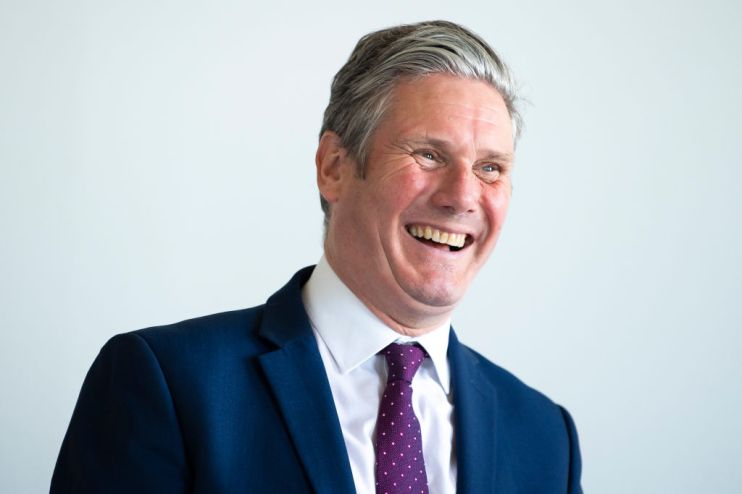Exclusive: Starmer says UK can be better off outside EU than inside

Labour leader Sir Keir Starmer has told City A.M. that the UK can have a better economic future outside the EU than inside if the government slashes post-Brexit red tape and diverges from Brussels’ regulations.
Starmer, formerly a staunch Remainer and advocate of a second referendum, said this can only be done through greater “flexibility” by both London and Brussels as he prepares to meet German chancellor Olaf Scholz in Berlin tomorrow.
It comes after Starmer has met with New Zealand Prime Minister Jacinda Ardern and Canadian Prime Minister Justin Trudeau in recent months, with the Labour leader keen to project himself as a statesman in the making.
When asked if it is possible for the UK to fare better economically outside the EU than inside, Starmer said: “Yes, we need to make a success of this.
“The government hasn’t got a real plan to take advantage of the opportunities to plan for the future. That’s why I’ve said we’ve got to make Brexit work.
“There’s no case to go back to the Single Market, to go back to the Customs Union.”
Labour largely avoided the issue of Brexit for the first two years of Starmer’s leadership in an attempt to not further alienate Northern voters that deserted the party in the 2019 election.
However, the party is now trying to take on the government over its handling of the effects of Brexit and has developed a five-point plan to “make Brexit work”.
This is despite some in the Labour party, including London mayor Sadiq Khan, calling for the UK to rejoin the EU’s Single Market, which would mean a return to freedom of movement between the UK and EU for people and goods.
Starmer is calling for the UK to diverge from EU-era financial services regulations to maintain the City’s competitiveness – something the government is currently working on – and to fix the Northern Ireland Protocol by closing a veterinary agreement with Brussels that would slash checks on food crossing the Irish Sea.
He says a Labour government would also negotiate mutual recognition of professional qualifications with Brussels to make it easier for UK services workers to operate in the EU.
“I understand why colleagues across the Labour party want to make sure we have the very best trading arrangements, the best security arrangements for our country,” he said.
“The way forward on this is to have the discussion on what the future relations look like based on the five-point plan I put forward a week ago.”
Figures last year from the Office for Budget Responsibility (OBR), Whitehall’s budget watchdog, suggest the UK’s GDP will be 4 per cent lower in the long-term than it would have been if Brexit did not happen.
Some economists have also suggested Brexit is partly to blame for recent OECD projections showing the UK is on track for the second-lowest GDP growth in the G20, behind heavily sanctioned Russia.
Starmer will also discuss the overlapping economic crises across Europe with Scholz, with the Labour leader saying this must be the “number-one item on the agenda”.
“We’ve had 12 years of stagnation, 12 years of slow growth. The cost of living crisis is far, far more acute than in other countries,” he said.
“This government is completely AWOL when it comes to dealing with the issue that is pressing so many millions of people across the country, which is the cost of living crisis – they’ve got absolutely no answer and they’re not even functioning.”
“My mission is to grow our economy.”
Labour will over the next year begin to firm up its policy offering before the next General Election, with a review by party chair Anneliese Dodds set to soon conclude.
Shadow chancellor Rachel Reeves has constantly criticised the government over the past year for hiking the UK’s tax burden to its highest level in decades post-Covid.
However, Starmer refused to be drawn on whether he was preparing a package of tax cuts beyond the party’s calls for a reversal to the recent 1.25 percentage point rise in National Insurance and a promise to reform business rates.
“We have set out the principles that should govern taxation. That is it should be fair – that means we want to reduce the burden on working people and look at all forms of income,” he said.
“The second principle is that it’s got to be efficient. That’s why we’re looking at all the tax loopholes … to see if they serve a proper purpose. If they don’t, we’ll close them down.”